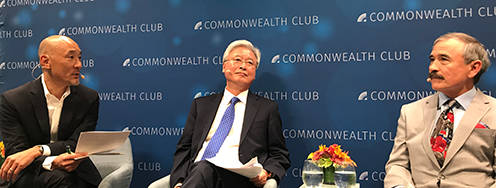Willing an End to Nuclear Weapons
Ann Krumboltz, Executive Director of the Brainerd Foundation in Seattle has a “big picture” perspective on what philanthropy can do – from achieving durable environmental protection to engaging civil society in addressing such issues. She believes that “as a ‘boomer’ growing up in the nuclear age, it’s hard to imagine a better legacy than sustaining Ploughshares Fund’s inspired and groundbreaking approaches to ending nuclear weapons and conflict that could lead to their use.”
That’s why it was a simple choice, as a long-time supporter, to include Ploughshares Fund in her estate plans.
While thinking about the kind of world you want to leave behind for future generations can be an inspiring exercise, thinking about putting your estate plans in order is not. Perhaps that is why 58% of American adults have not written a will, giving them little control or input into issues such as what will happen to their assets or any minor children or dependents after they die.
But, creating your estate plan does not have to be hard and can be rewarding and meaningful – allowing you to plan for your family and sustain the causes you have supported in your lifetime.
A will is a basic component of estate planning. Among other things, it specifies how your assets will be distributed after you pass away, and who will receive them.
National surveys have shown that people are more likely to have a will as they get older. More than half of Americans age 50 and older have a will. But the numbers steadily drop among younger adults. Only about a quarter of people between the ages of 25 and 34 have a will. Among Americans between the ages of 18 and 24, the figure drops to less than ten percent.
An important fact: Everybody has an estate. Most people don’t think they have an estate at all, because the word “estate” has come to be associated only with mansions and trust funds, but the reality is that your estate is anything you leave behind at death, be it a mansion or modest home; millions of dollars or hundreds of dollars.
If you don’t take steps to make sure your estate passes to those you want it to pass to, or to charities that you have supported, a judge will decide who gets what based on your state’s intestacy laws, which are triggered when you die without a will or other estate plan. Intestacy laws attempt to mirror what the average person would want done with their property had they prepared a will, but often such statutes fall far short of the mark and incur costs for court fees and other probate expenses. Without a will, the laws of the state and the decisions of a probate court may determine how your estate is distributed, including important issues you might not expect, like who will care for your underage children.
That means that just a little planning can have a significant impact.
Ann, for example, has combined her estate plans with her deeply held beliefs about making the world a better place. “Although Ploughshares Fund has achieved many successes to date, its mission, the eventual elimination of nuclear weapons, requires both a short – and longer – term vigilance. What group could be more deserving of such support?”
For a cause that you support and invest in your whole life, continuing this commitment by making a bequest gift will endow your giving, supporting these efforts in perpetuity.
What will your legacy be?



